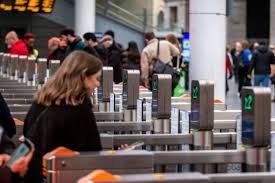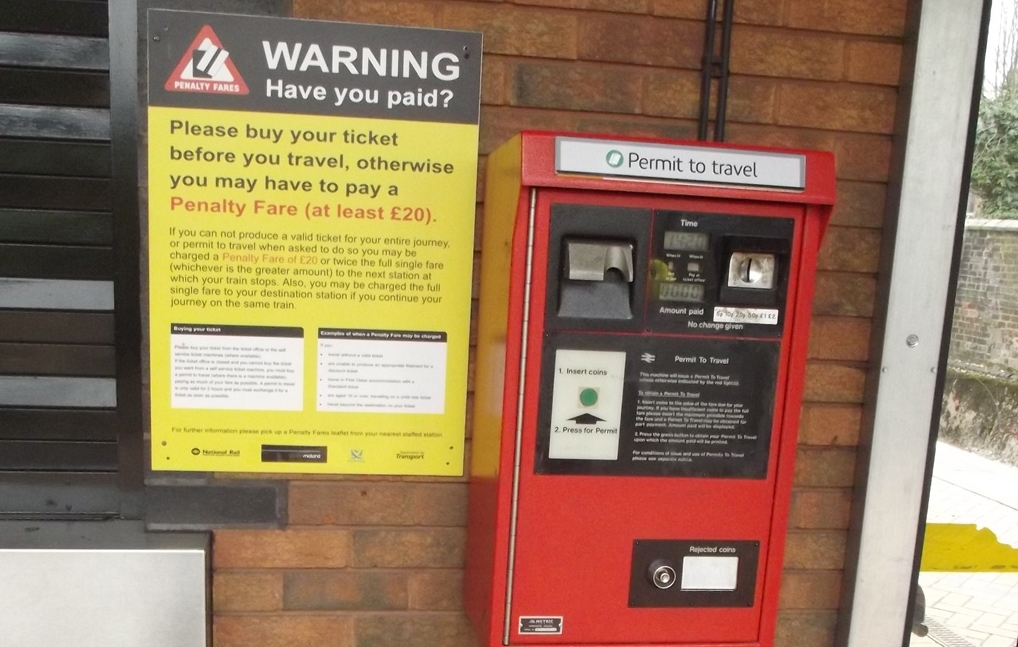Receiving a charge for fare evasion can be both worrying and confusing. You may have simply overlooked tapping in or out with your Oyster card, boarded the wrong zone, or used a ticket you believed was valid, only to discover that transport staff view your actions as intentional fare dodging. In the UK, fare evasion is taken seriously by train and bus operators, as well as Transport for London (TfL), and penalties can escalate quickly if ignored.
Fortunately, many people find that a methodical and well-structured appeal can resolve the matter before it leads to a criminal record or severe fines. As a solicitor who has handled numerous fare-related cases, I understand the stress these charges can cause. This guide aims to clarify the appeal process, offer practical tips on presenting your case effectively, and help you decide if seeking legal advice might be beneficial.
Understanding a Fare Evasion Charge
A fare evasion charge typically arises when a Revenue Protection Officer or inspector concludes that you have travelled without a valid ticket or with the intention to evade payment. Common examples include using someone else's season ticket, travelling beyond your paid zone, or failing to tap in or out on a contactless or Oyster card. Even if you never meant to avoid paying, UK law often treats such offences under strict liability, meaning intent is not always required for a penalty to be issued.
Several laws and byelaws govern fare evasion. The Regulation of Railways Act 1889 is historically significant, but many modern-day cases also fall under the Railway Byelaws (specifically Byelaw 17 for ticket requirements and Byelaw 18 for ticket offences). Different transport operators apply these rules in slightly different ways, but they generally allow you the chance to appeal or pay a penalty fare to avoid further action.
The Consequences of Not Appealing or Responding
Ignoring a fare evasion charge rarely makes it go away. In fact, doing so often triggers larger fines or more serious legal steps:
- Escalation: If you fail to act within the timeframe set out in the penalty notice or letter, often 21 days, transport operators can increase the amount owed. In some cases, they may issue a court summons.
- Criminal Record: Should the matter end up in court and result in a conviction, you may face a criminal record, which can impact future employment, professional licences, and even travel visas.
- Financial Impact: Beyond fines, you could incur administrative or legal costs, especially if debt collection agencies or court proceedings become involved.
It is crucial to respond promptly and follow the correct procedure to protect your rights and mitigate any financial or legal risks.
Grounds for Appeal
While fare evasion is considered a serious matter, many successful appeals hinge on demonstrating that a mistake or external factor contributed to the incident. Common grounds include:
Faulty or Inadequate Equipment
If a ticket machine was out of service or a barrier malfunctioned, resulting in your inability to purchase or validate your ticket. Photographic evidence or station reports can be highly persuasive.
Staff or System Error
An incorrect ticket issued by station staff or a glitch during online purchase. Evidence, such as receipts or confirmation emails, can bolster your case.
Medical or Personal Emergencies
Hospital visits, sudden illnesses, or family emergencies that prevented you from buying a ticket. Official documentation (e.g., a hospital letter) may support your claim.
Honest Mistakes
Overlooking travel zones, misreading an expiry date, or confusion over time-limited tickets. While strict liability might still apply, demonstrating genuine error can influence an operator's decision.
Other Mitigating Factors
Any unique circumstances that contributed to the situation. Be prepared to explain why they are relevant to your specific case.
Steps to Prepare for an Appeal
Collect Documentation
Gather every piece of evidence that supports your version of events. This might include old tickets, payment receipts, bank statements showing you attempted to buy the correct fare, or screenshots of online purchase confirmations.
Record Journey Details
Write down the date, time, route, and names of stations involved. If you spoke to staff, note their name or employee ID if possible.
Obtain Photographic or Video Evidence
If a ticket machine was broken or signage was unclear, photographs or video clips can help substantiate your claim.
Draft a Clear Explanation
Prepare a concise, factual statement detailing what happened, why you believe the charge is misplaced or unfair, and what steps you took to comply with ticket requirements. Avoid emotional language or personal attacks.
Be Aware of Deadlines
Most notices specify an appeal window (commonly 21 days). Missing this deadline almost always undermines your appeal, so send your documents in a timely manner.
The Appeal Process
Operator-Level Appeal
In most cases, your first appeal goes directly to the transport operator or an authorised third party. For trains, you may appeal through a body such as IRCAS or the operator's own penalty fares office. TfL and various bus companies also have online or postal appeal forms.
Independent Adjudication
Some operators offer a second tier of appeal if the first is refused. This step often involves an external body that reviews the operator's decision and your evidence independently.
Communication Channels
Appeals may be submitted online, by post, or occasionally by telephone. Follow the instructions given in the penalty notice or on the operator's website to ensure your appeal is received in the correct format.
Potential Outcomes
- Cancellation or Reduction: If the appeal authority agrees you had valid grounds, they may cancel or reduce the charge.
- Upholding the Charge: You could be required to pay the original fare or penalty in full. In this situation, consider whether further escalation (like a second appeal) is possible.
- Warning: In some cases, the operator may withdraw the penalty but issue a warning instead.
What to Do if the Appeal Fails
If your appeal is rejected and you still disagree:
Payment Options
You will typically be expected to pay the penalty or outstanding fare within a specified timeframe. Failure to do so can lead to additional surcharges or even prosecution.
Further Challenges
Some operators offer a second appeal stage or final review. Carefully read any letters or emails you receive to see if this applies. Once all internal procedures are exhausted, you may have to face magistrates' court if the operator pursues prosecution.
Seeking Legal Advice
Should you reach an impasse, or if the transport authority decides to take you to court, contacting a solicitor is often the best step. A legal professional can assess your case, negotiate a possible settlement, or represent you in court to minimise penalties or avoid a criminal record.
Role of a Solicitor
Case Assessment
A solicitor specialising in fare evasion can scrutinise the details of your case, identify any procedural missteps by the transport operator, and pinpoint strong defences.
Negotiation and Settlement
In many cases, the operator may be open to out-of-court settlements if you can present mitigating evidence or if there were genuine errors. Solicitors are trained to negotiate effectively, often preventing a matter from reaching court.
Representation in Court
If prosecution cannot be avoided, a solicitor ensures you receive a fair hearing, presents your evidence, and challenges the operator's case if necessary. Skilled advocacy can reduce fines, prevent a criminal record, or secure a more lenient outcome.
Cost vs. Benefit
While legal fees vary, the possibility of avoiding a conviction or large fine often outweighs the expense of hiring professional help, particularly if your job or reputation could be jeopardised by a criminal record.
Common Pitfalls to Avoid
- Missing Deadlines: Failing to pay or appeal within the time limit almost always leads to immediate escalation or appeal denial.
- Insufficient Evidence: Providing only vague or verbal claims without documentation leaves your appeal on weak ground.
- Aggressive or Emotional Responses: Transport operators are more likely to engage constructively when approached calmly and with factual clarity.
- Ignoring Communications: Never disregard letters or emails from the operator or appeal bodies. Address them promptly to avoid worsening the situation.
Conclusion
A fare evasion charge can feel intimidating, particularly if you believe you did nothing wrong. However, approaching the problem systematically can significantly improve your odds of success. Begin by gathering thorough evidence, drafting a concise explanation, and filing an appeal within the operator's specified timeframe. If your initial appeal fails, consider whether a second level of adjudication is available or seek help from a solicitor, who may be able to negotiate a fair settlement or represent you in court.
Above all, do not ignore a fare evasion charge. Transport operators have a vested interest in pursuing unpaid fares, and ignoring the notice only increases the likelihood of higher fines or a criminal record. By taking control of the situation, appealing when justified, supplying credible evidence, and engaging politely with the authorities, you stand the best chance of achieving a favourable outcome.



